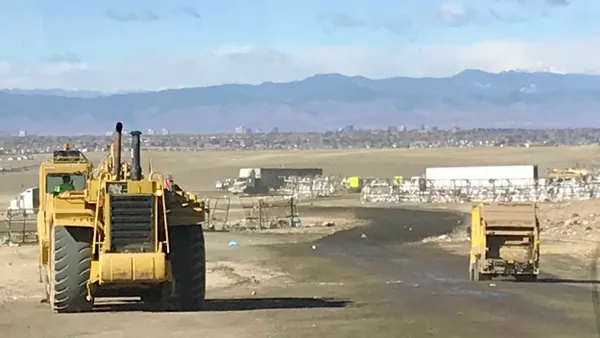Dive Brief:
- In prepared testimony, Stephen Cobb, past president of the Association of State and Territorial Solid Waste Management Officials (ASTSWMO), told members of the House Energy and Commerce Committee one reform to consider is authorizing states to directly implement site assessment and cleanup, and establish a State and Tribal Assistance Grant (STAG) program. Cobb said such a move would free up federal EPA resources to focus on sites where there is no responsible party for the cleanup.
- Other suggestions from Cobb, speaking on behalf of ASTSWMO, include making it easier for responsible parties to front the cost of cleanup, rather than EPA seeking money through litigation, making sure that the federal government is held to the same standard as private entities when found responsible for sites, and considering "greater flexibility" for how states are held financially responsible for certain cleanups.
- Recommendations from other consultants and experts included removing "remedy review boards" to expedite how site remedies are chosen; increasing the Superfund budget; and giving more cleanup sites to state-level — rather than federal-level — agencies.
Dive Insight:
The House committee hearing revealed a commitment from the legislative branch to pay attention to and take seriously the Superfund. Whether Congress' commitment will match the commitment that EPA Administrator Scott Pruitt has so far shown, however, remains to be seen.
Pruitt's prioritizing has not been without complications. The Energy and Commerce Committee asked Pruitt in late December to explain how certain sites were chosen for his personal attention and for "immediate, intense" action. Reps. Greg Walden, John Shimkus and Fred Upton, who signed the letter to Pruitt, asked for a response by Jan 8. The EPA missed that deadline.
Principal Deputy Assistant Administrator Barry Breen — who is appearing as a witness in front of the committee hearing on modernizing the Superfund — responded to the request Jan. 16, though the letter lacked meaningful detail on how the sites were chosen, or what Pruitt's direct involvement might look like. The letter did note, however, that Pruitt was retaining the personal authority and responsibility to approve and sign records of decision above a $50 million limit. "This allows him to personally take responsibility for selecting the costliest and most complex cleanups," the letter reads. "A number of sites expected to exceed this threshold are included on [the list of targeted sites]."
While there has been plenty of interest from the executive and legislative branches, it remains unclear if meaningful reform via legislative action is possible or even likely. With a potential government shutdown looming, it's likely that esoteric reform of environmental legislation will take a back seat negotiating to keep the government funded.









